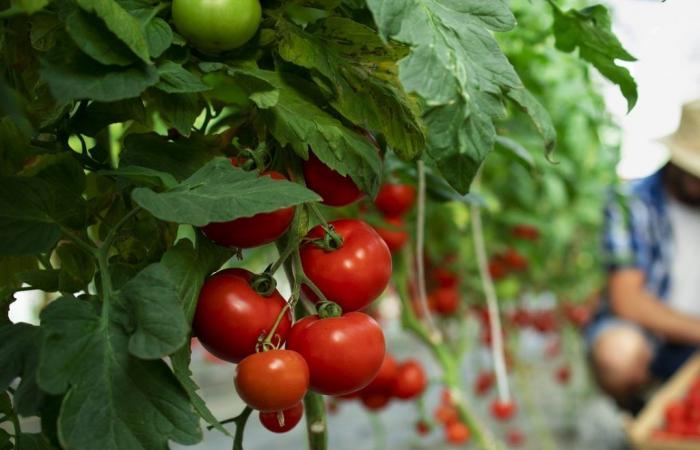MDespite successive years of drought, Morocco maintains its export capacity for agricultural products. For fruits and vegetables, the main sector concerned, their value reached 1.6 billion dollars in 2023, an increase of 12%, exceeding the average of the last 5 years by 50%. Notwithstanding fierce competition from other Mediterranean countries, Moroccan products are essential in many markets, particularly European ones.
Tomatoes, the flagship product of exports, with more than 66% of the volume, alone have a value of 1.06 billion dollars. More than 70% of these exports are intended for Europe and more precisely for the Kingdom’s historical and commercial partners, such as Spain and France. Morocco has, for some time, tried to diversify its outlets towards extra-European markets. The aim was to increase the volume exported, but also to reduce dependence on Europe. Because when political relations are not good, Moroccan agricultural exports suffer and are the target of hostile acts, whether from European farmers, particularly Spanish and French, or from members of the European Parliament.
The protesters argue that Moroccan products contain high levels of pesticides compared to the standards tolerated by Brussels. They also put forward the argument of respect for the environment or child labor. For certain parliamentarians supported by pro-Algerian lobbies, it is because of the Moroccan Sahara, which must not appear as national territory in the agricultural agreement.
“Moroccan products are highly appreciated in European markets, both for their quality and for their competitive prices. They compete strongly with local products. It is for this reason that European farmers from time to time carry out acts of hostility towards Moroccan products. Non-tariff barriers are always used to put pressure and block them. To overcome these obstacles, Moroccan operators are obliged to devote substantial budgets to the certification of their products and the traceability of their origin, place of production and packaging. The problem is that these standards change over time and each time we have to readjust the production and value chain to comply,” explains Abderrahim Mouhajir, agricultural consultant.
It is clear that Moroccan exporters of agricultural products know the European market perfectly and concentrate all their efforts on this outlet. To invest in new countries, they must overcome numerous constraints such as language, logistics, legislation and also pricing standards. “Most Moroccan agricultural exporters work with European markets, for historical and cultural considerations. Others are incidentally interested in African markets. While some want to have access to other very interesting outlets, such as North America, Russia or the Gulf countries. To meet the requirements of these markets, you must comply with their standards. And most often, they are different from European standards. Hence an additional effort to consider,” adds Mouhjir.
It is for this reason that export-oriented federations or associations, such as the Association of Fruit and Vegetable Producers and Exporters (Apefel) or the National Agri-Food Federation (Fenagri), have designed guides for the benefit of their members. Finally, note that non-tariff standards are denounced by the World Trade Organization (WTO) and the World Agriculture and Food Organization (FAO). They believe that they are an obstacle to the development of trade in the world. And penalize small farmers for the benefit of large farmers who have the means to cope.






